Articles Menu
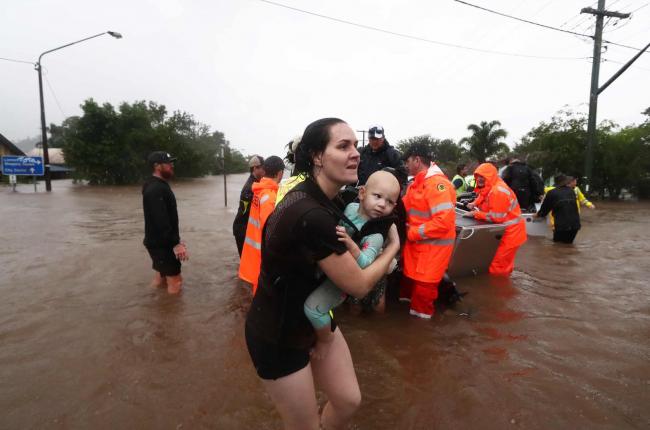
Mar. 4, 2022
When Jenni Metcalfe returned to her Brisbane home to survey the damage as the nearby river peaked, water had already risen a metre up the back wall. There was nothing she could do. “I sat in the gutter and watched it and cried,” she said.
The east coast of Australia has been battered by more than a week of torrential rain, as communities begin to survey the wreckage of fatal flash flooding that has left townships looking like war zones.
South-east Queensland and the north coast of New South Wales have borne the brunt of the “one in-1,000 year” catastrophic weather conditions, which have claimed at least 17 lives.
Residents in the regional city of Lismore in north-eastern NSW are still reeling from the worst flooding in its history, which sent huge areas of the regional city underwater with the cleanup likely to last months, if not years.
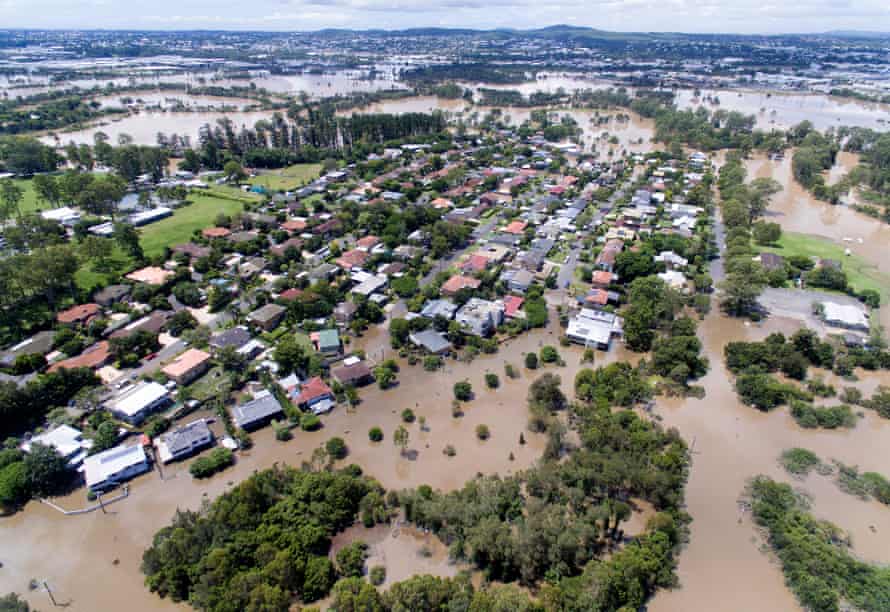
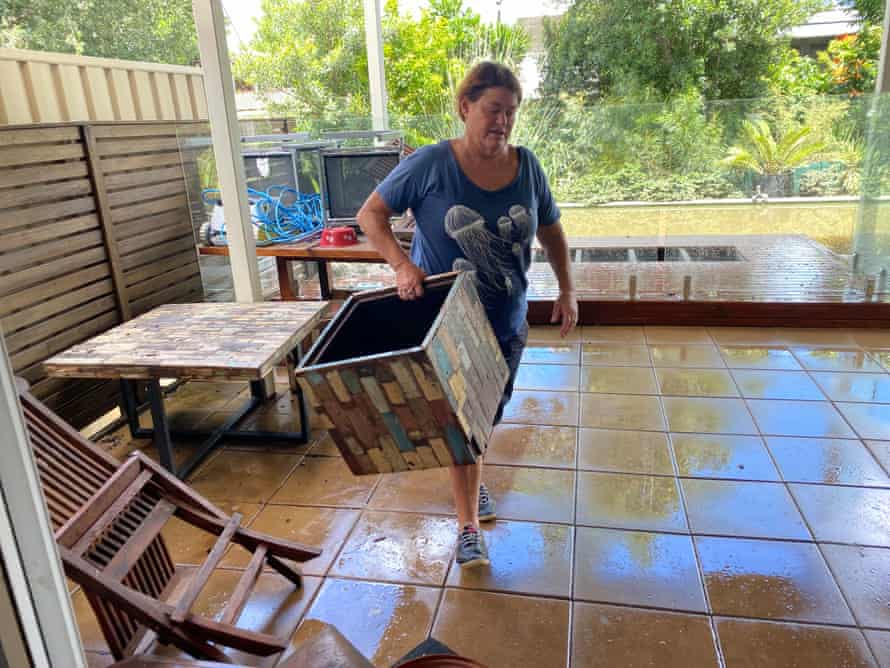
More than 700mm of rain fell in just 30 hours during the worst of the floods on Monday, forcing hundreds of the town’s 43,000 residents to scramble onto their rooftops and wait to be rescued by emergency services crews.
Four of the dead were in Lismore, people who were trapped in flooded homes or swept away while trying to escape. A number of the city’s residents remained missing.
Among the devastation have been stories of heroism and kinship.
World championship surfers Mick Fanning and Joel Parkinson spent Tuesday ferrying stranded residents and distributing supplies on their jet skis at badly hit Tumbulgum on the north coast of NSW.
Emergency services volunteers saved dozens of elderly trapped in their homes and facilities, using boogie boards and dinghies to pull residents through windows and ferry them to safety.
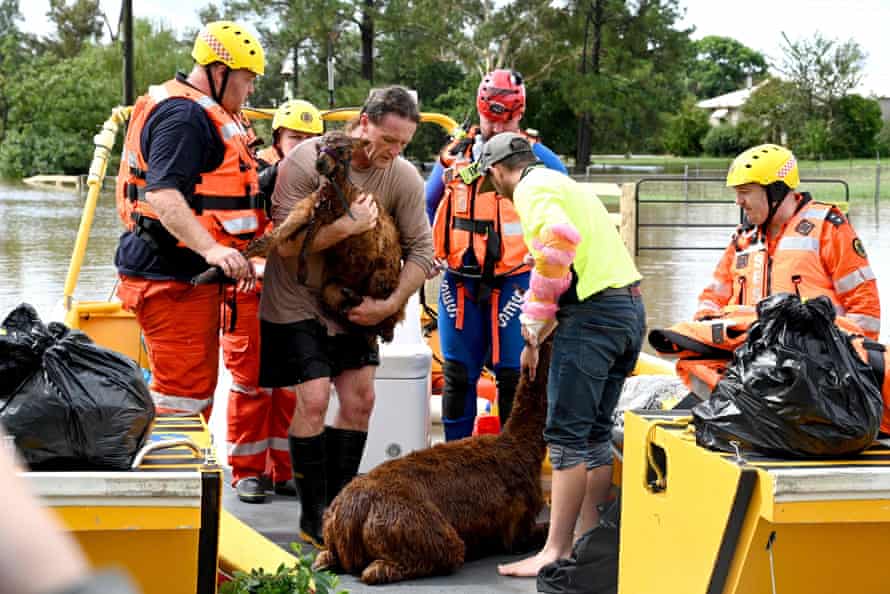
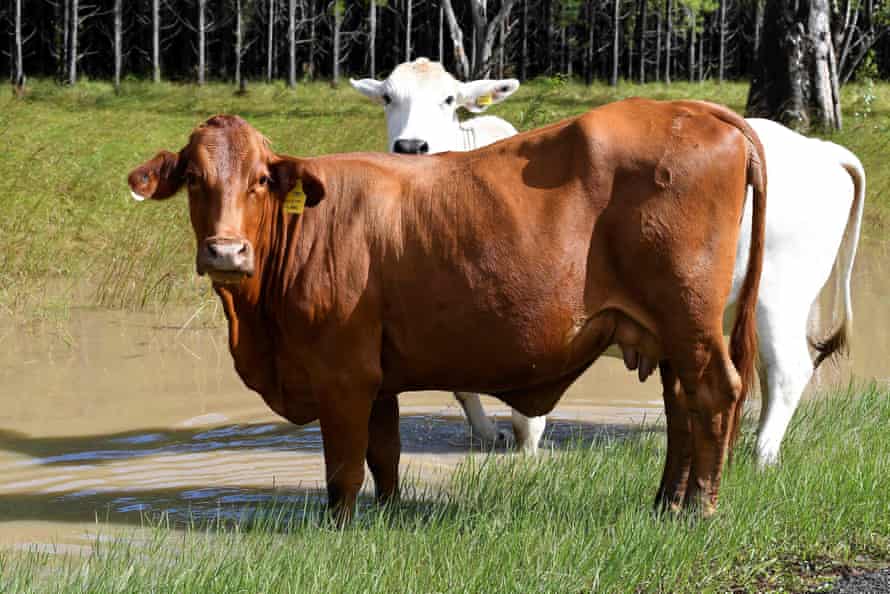
Others spent hours locating and mustering hundreds of livestock that were swept away in flood waters causing devastating losses for farmers already hit by drought and past flooding events. If lucky, the occasional cow turned up on beaches or rooftops.
As the cleanup in Lismore began on Thursday, a harsh sun strengthened the stench of mud and sewage on the main street as business owners returned to their ruined shops where flood waters had crept up to the ceiling.
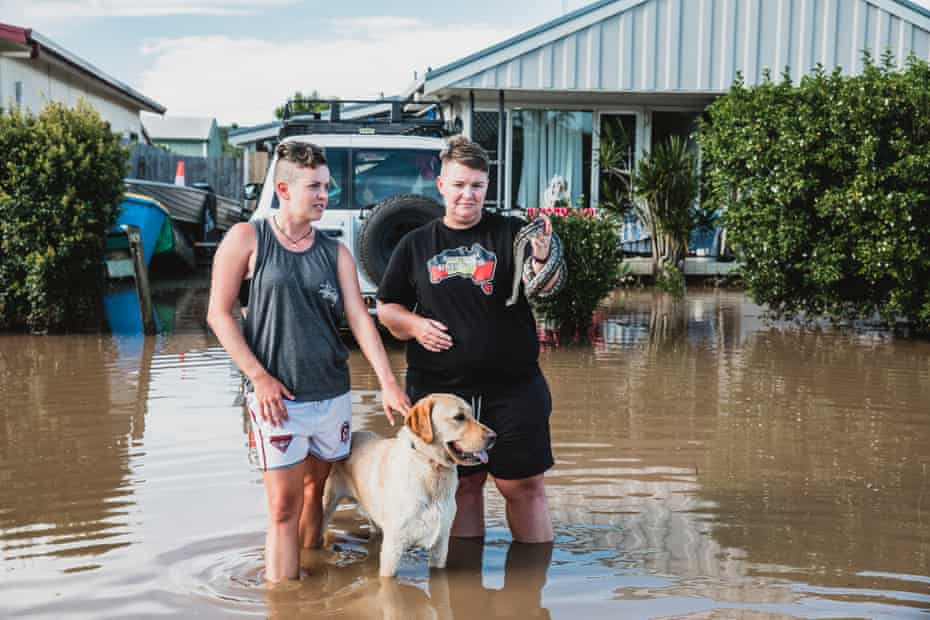
Mark Bailey was one of them, forced to wade through a pile of ruined goods and furniture he estimated was worth $5m amassed at the front of his collectibles store, The Penny Man.
“Everything in there’s fucked,” he told Guardian Australia, holding an album of vintage East German stamps that were dripping brown and unsalvageable.
“I’m not mad at anyone in particular, every shop has a different story along here,” he said. “We won’t be reopening here, and I would be surprised if half of the street ever does.”
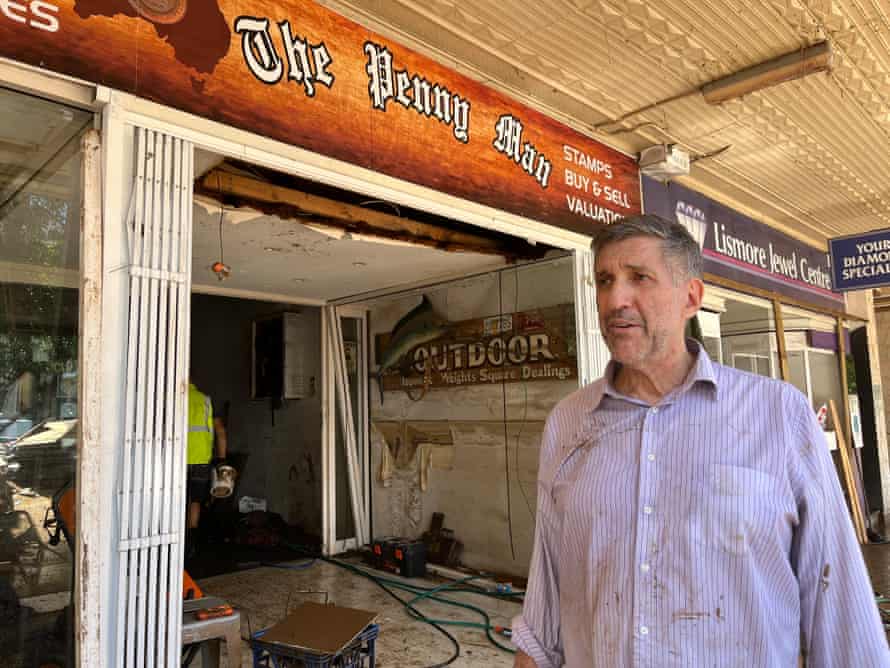
Many businesses that went underwater, including Bailey’s, were uninsurable given their proximity to riverbanks and flood-prone areas.
The cleanup had barely begun in large parts of south-east Queensland when residents were again forced to take cover due to more storms.
The “rain bomb” that battered the capital city of Brisbane and surrounds until Monday killed 10 people and damaged more than 17,000 homes and businesses. Some 739mm of rain fell in just four days – nearly 75% of the annual average.
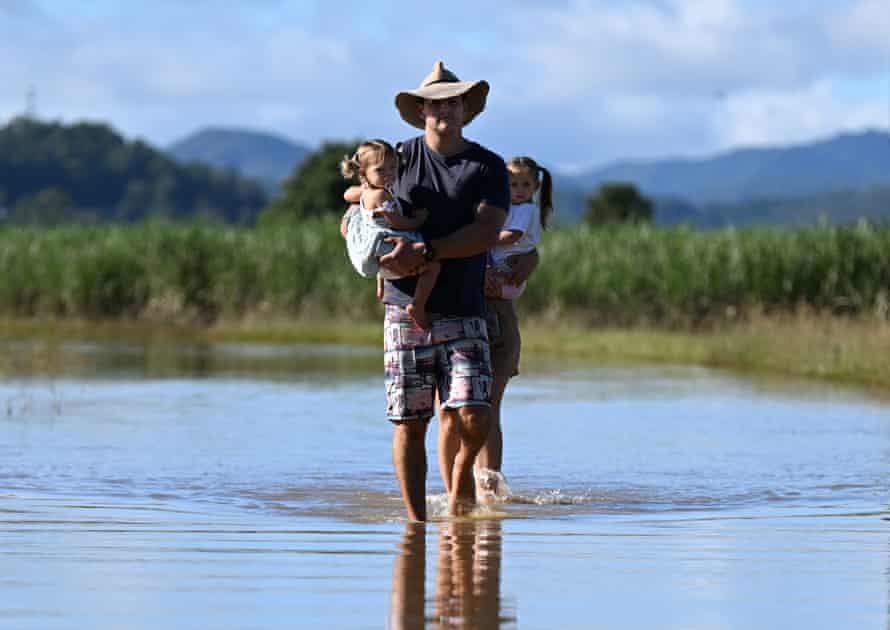
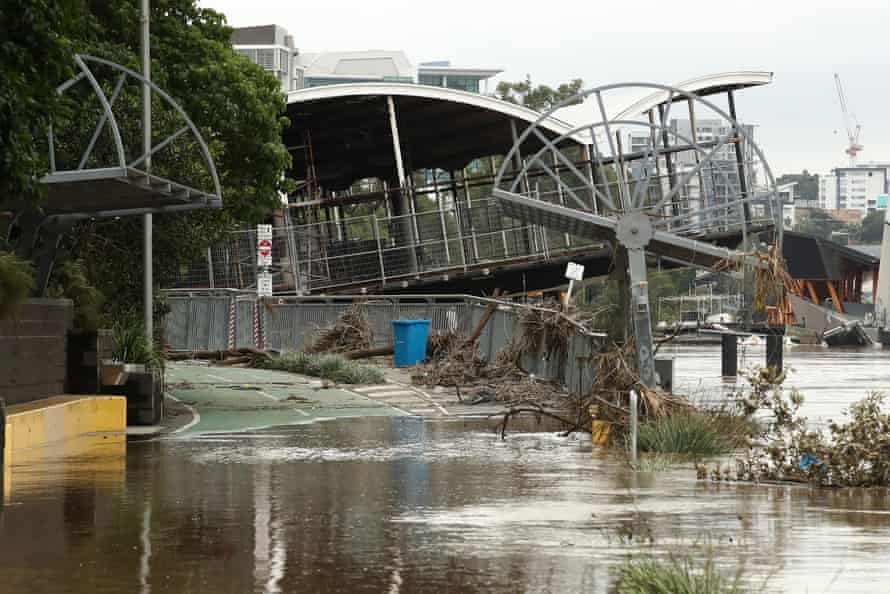
On Friday, all schools in south-east Queensland closed except for children of essential workers in anticipation of further “extremely unstable” storms.
That the floods hit the same week the Intergovernmental Panel on Climate Change released its latest report on the climate crisis, warning extreme weather events including floods were wreaking increasing damage, did not go unnoticed.
The Queensland premier, Annastacia Palaszczuk, warned Queenslanders were living through “unprecedented times”, a sentiment echoed by the NSW premier, Dominic Perrottet.
“I’ve lived in Brisbane essentially all my life and I haven’t seen storms and floods like this all being thrown at us at once,” she said.
While flood waters in some parts of the country begin to recede, many Australians brace for another wave of water as the storm regroups and moves south towards Sydney. A sense of frustration and fatigue has set in.
Some, like property owners in the lowlands of Richmond, north-west of Sydney, are still rebuilding from the last catastrophic floods that struck in March 2021. Many have yet to received promised government assistance.
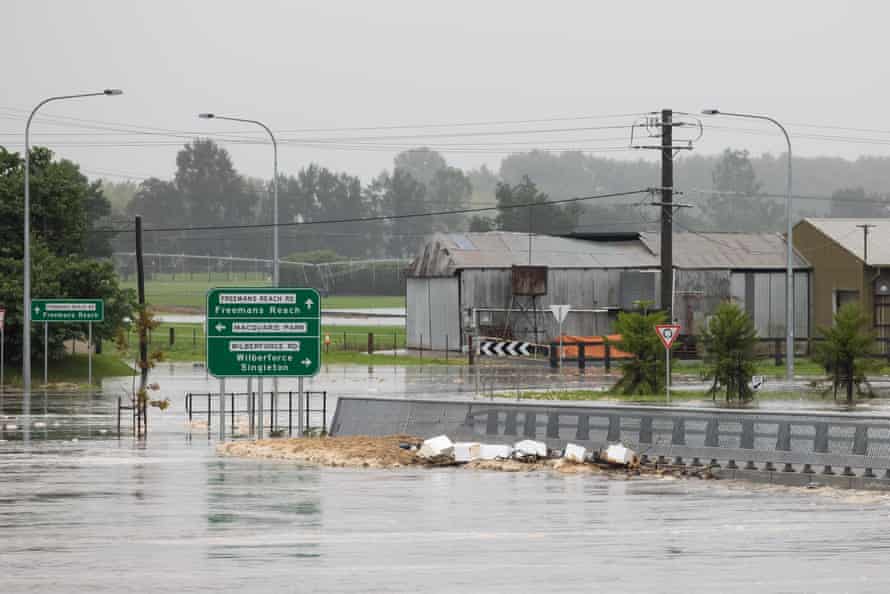
Pharmacist Skye Swift, who made headlines when Fanning ferried her to her chemist shop to distribute essential medicines to her community, is exhausted reflecting on the road to come.
Telecommunications outages were hampering the recovery effort, and supermarkets were grappling with potential weeks-long shortages of fresh produce amid a burgeoning supply crisis.
Swift told Guardian Australia the good news stories, the solidarity, was “beautiful, but not enough at the end of the day”.
“We’ve now got weeks and months of rebuilding,” she said. “And how do you rebuild when you don’t have any money, a job?
“It’s the aftermath that gets missed, that’s the heartbreaking part … it’s going to be a long road.”
[Top photo: Lismore residents in NSW evacuate from worst floods in the regional city's history. Jason O'Brien/APP ]